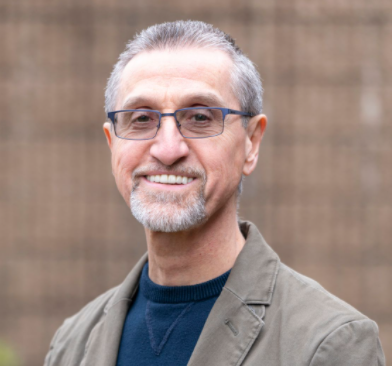Tips on Mental Health & Self-Care During COVID-19
By Ron Gonzalez, M.P.S.
Counseling Pastor of Christ Church
Over the last 20 years of my service as a pastor, I have never seen the level of disruption and chaos present itself in peoples’ lives as I have seen with the COVID-19 pandemic. That includes major national and global events, such as the terrorist attack on 9/11, Hurricane Katrina in 2005, the economic downturn of 2008, Superstorm Sandy in 2012, and civil unrest and protests the last several years in various cities all over the U.S.
COVID-19 has created an upheaval that has impacted all of us. For some, it has turned their entire world upside down. The uncertainty and unpredictability of the pandemic has caused us to face our mortality, question our safety, our future, even the meaning of life. Not knowing what tomorrow holds has the potential to create enormous stress and anxiety.
I know for me, I have had to pull out every coping mechanism and tool I’ve accumulated in my survivor toolbox just to stay afloat. Yes, I know I’m a Christ-follower. Yes, I know I’m a man of faith. I also know in many ways it’s during challenging times like this that we discover what we’re really made of. But, I really didn’t need a sobering reminder that I’m not Rocky Balboa or some indestructible superhero. I’m very human, with frailties, weaknesses, and shortcomings. There, I said it! I need God and the community of other believers every day, all day long.
Experts in disaster recovery have attempted to educate us on the many phases of disasters. It’s worth taking another quick look at them in light of COVID-19:
- First is the Impact Phase, when the disaster strikes.
- Directly following that is the Heroic Phase. During this phase many people go out of their way to help others who are more vulnerable and in need.
- Following that is the Honeymoon Phase, when communities feel close and united due to the experience. This phase can last for a week to months.
- Then comes the Disillusionment Phase. In this phase, reality sets in like a heavy burden and can bring with it financial struggles, dejection, and weariness.
- This can take a major toll on marriages, families, and peoples’ overall emotional and mental health.
- Lastly is the Reconstruction Phase, which can extend for years and gets communities and families on the road toward recovery.
As you can see, there is a lot at stake. In our region, we’ve been in the Disillusionment Phase for some time with many unsuccessful attempts to fully transition to the Reconstruction Phase.
If you’re like me and the vast majority of people I have come across over the last 20 years, you want your life to count for something. You desire in some way to make a difference with your life. For some the pandemic has served to clarify their purpose; for others it feels like we’re the proverbial snow globe, representing our innocence and childhood, which has been turned upside down, shaken, and now facing an unknown outcome.
The last thing we need is to add guilt to our already overwhelming circumstances. What we do need is hope, encouragement, support, and the right help at the right time without adding any judgment to it. Just give us the tips and tools we need to equip and sustain us so we can come through even stronger than we were before this crisis. By the way, that’s a very simple definition of resiliency—it’s the ability to withstand, recover, and grow in the face of stressors and changing demands. That’s true not only for the traumatic moments in our lives, it’s also true for dealing with daily hassles and stressors. Resilience is about ordinary peoples’ accomplishments in the face of challenges and stressors.
Why does resilience matter? Using resilience skills, or also known as practicing self-care, can lead to positive outcomes. For example:
- Resilient people perform better in a variety of areas that include creativity, academic achievements, problem-solving, and better decision-making.
- Resilient people experience better health with lower blood pressure, better sleep, better immune functioning, and a longer life span.
- Resilient people tend to have more of a growth mindset. They are open to new perspectives, and believe challenges are an opportunity for personal growth.
The good news is that people can learn to be resilient. Research has shown that learning new skills—and practicing those skills—can increase resilience. In particular, focusing on positive coping skills and emotion-regulation can build our resilience.
For this reason, Christ Church wants to provide practical help for all of us to maintain good emotional, mental, physical, and social health. We care deeply about you and your family and are here to serve you with many resources to get through these challenging times together.

By Ron Gonzalez, M.P.S.
Counseling Pastor of Christ Church
Ron Gonzalez is the Counseling Pastor of Christ Church, providing direction for the Counseling Ministry, Pastoral Care, Care Groups, Grief Recovery, Prayer, and Chaplaincy Ministries. In his spare time, he is an avid runner, competing in half-marathons, marathons, and triathlons.